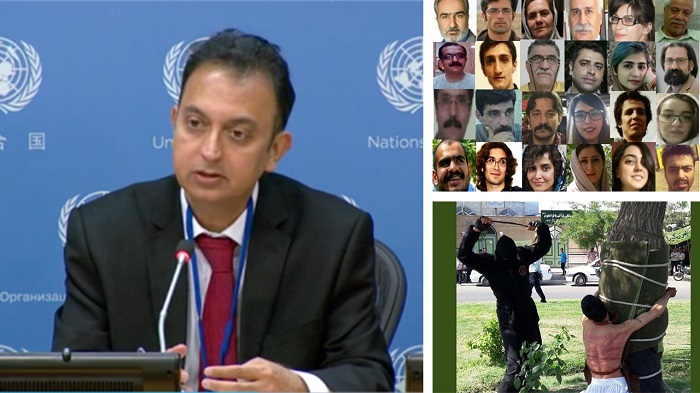
(PMOI / MEK Iran) and (NCRI): Javaid Rehman, the UN Special Rapporteur reports on the dire Human Rights situation in Iran.
On Monday, the UN Special Rapporteur on the Situation of Human Rights in Iran, Javaid Rehman, presented his latest report to the UN General Assembly. It stressed the pattern of continued and intensifying injustices at all levels, as well as the role that the Iranian regime’s “impunity” has played in that pattern.
Serious human rights violations continue
“The situation is made worse by the fact that individuals accused of committing serious human rights violations continue to hold powerful positions, including at the highest levels of government,” Rehman said.
He was specifically alluding to Ebrahim Raisi’s “selection” as the regime’s new president. Raisi’s candidacy was met with strong domestic opposition, with some referring to him as the “henchman of 1988,” referring to his role in a massacre of political prisoners that occurred in the summer of that year. A fatwa issued by then-Supreme Leader Ruhollah Khomeini declared members of Iran’s main opposition party, the People’s Mojahedin of Iran (PMOI / MEK Iran), to be enemies of God and ordered their systematic death.
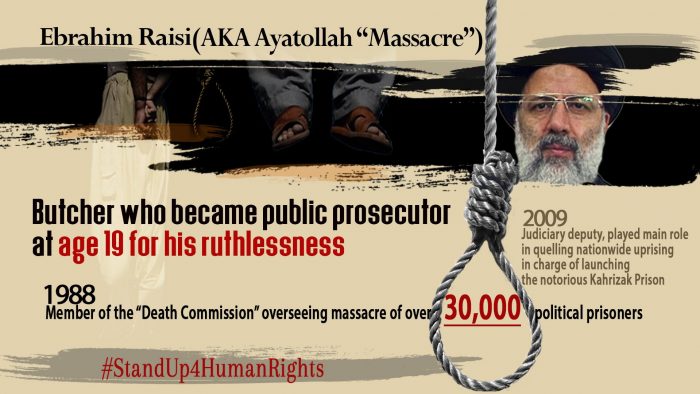
(PMOI / MEK Iran) and (NCRI): Ebrahim Raisi, a mass murderer (Henchman) of MEK activists and political prisoners appointed as head of the Iranian regime’s Judiciary.
Raisi was a member of Tehran’s “death commission”
Raisi was a member of Tehran’s “death commission” in June 1988, which was responsible for questioning detainees about their political ideas and associations, then passing death sentences for those who refused to show devotion to the religious rule. Death sentences were routinely handed down during “trials” that lasted only a minute or two, and several survivors of the slaughter have said that Raisi seemed particularly determined to cast a wide net in carrying out Khomeini’s orders.
Mr. Rehman stated that the regime had attempted to remove any proof of the 1988 massacre over the last few years. “My mandate is concerned about the high number of acts of retaliation carried out by security and intelligence agencies against victims’ families, human rights defenders, lawyers, journalists, and others who call for accountability,” says the report.
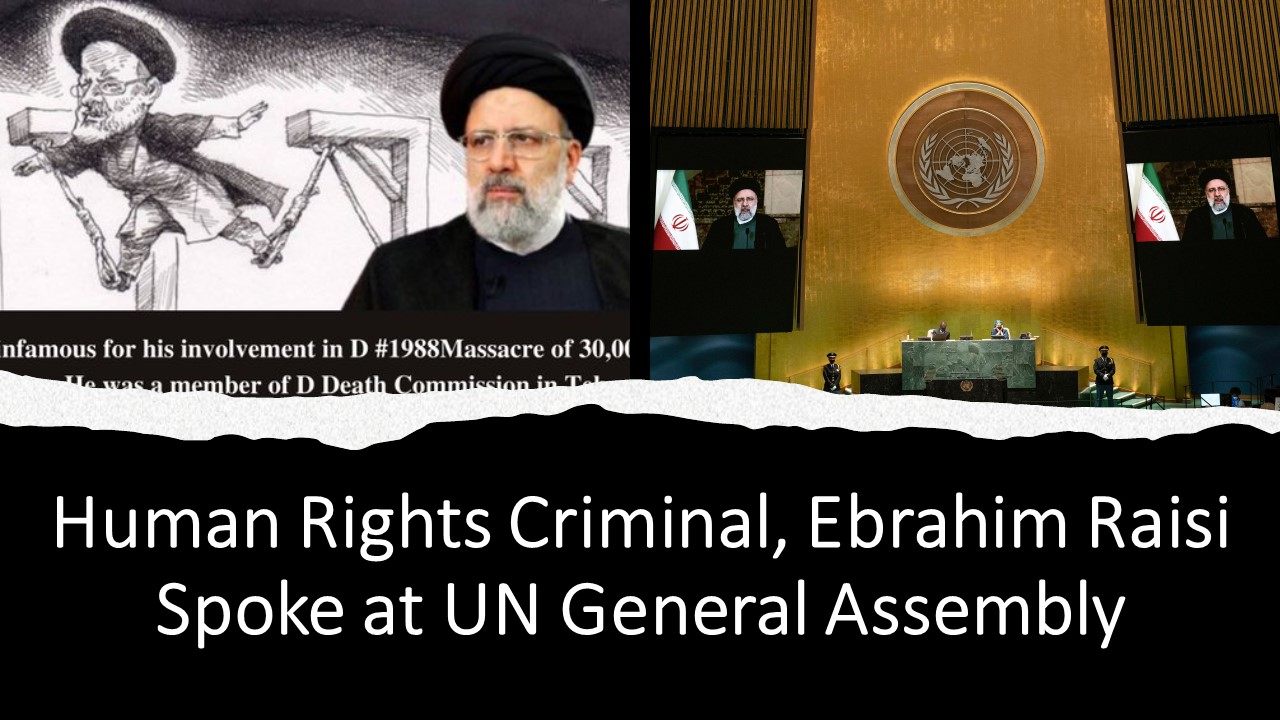
(PMOI / MEK Iran) and (NCRI): the Iranian regime’s president addressed the UN General Assembly via video conference instead of attending the assembly in person on Tuesday.
An open letter with six other UN human rights experts
Rehman had signed an open letter with six other UN human rights experts more than a year prior, urging regime authorities to halt the harassment and embrace a policy of transparency on the 1988 massacre.
The UN General Assembly expressed “grave concern” in December 1988 about “a renewed pattern of executions in the period July-September 1988” targeting detainees “due to their political convictions,” according to the letter. The General Assembly, the Security Council, and the Human Rights Commission were subsequently chastised for failing to follow up. “The failure of these bodies to act had a devastating impact on the survivors and their families, as well as on the general situation of human rights in Iran,” the experts wrote. “It emboldened Iran to continue to conceal the fate of the victims and to maintain a strategy of deflection and denial that continues to this day.”
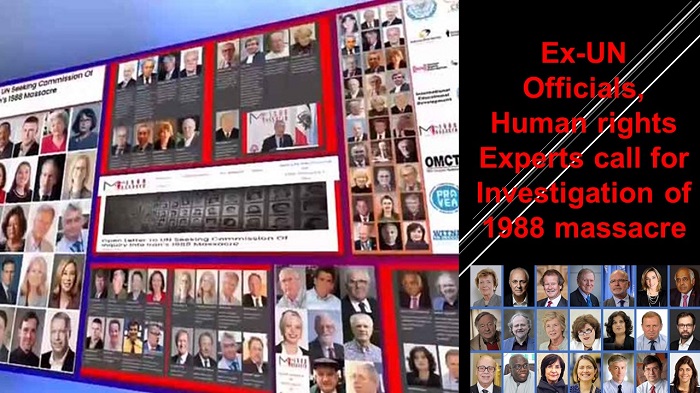
(NCRI) and (PMOI / MEK Iran): Ex-UN Officials, human rights experts call for investigation of the 1988 massacre.
Tehran established its impunity in November 2019
This “devastating impact” was most seen when Tehran established its impunity in November 2019, and for several months afterward, by cracking down on dissent in the aftermath of a countrywide revolt.
Over 1,500 people were killed as authorities opened fire on crowds in numerous locations. Around the same time, at least 12,000 more people were arrested, and many of them were subjected to various forms of torture over the course of several months. Ebrahim Raisi, the head of the judiciary at the time, was telling.
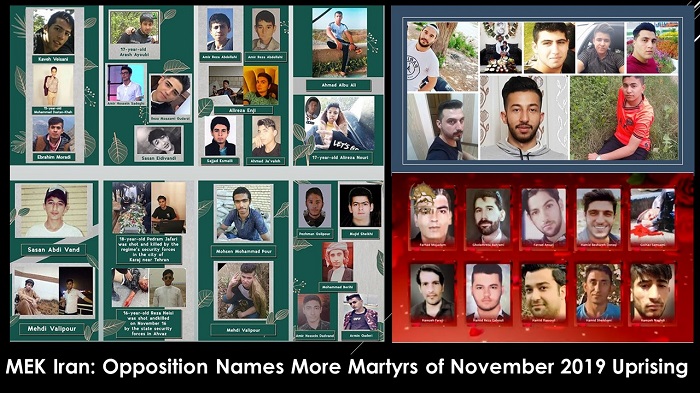
(NCRI) and (PMOI / MEK Iran): Opposition names more martyrs of November 2019 uprising.
The lack of an international response
Raisi now serves as the regime’s president. The regime concluded that Raisi’s legitimacy and conduct would not be substantially questioned on the international stage due to the lack of an international response.
Since then, the Iranian Resistance has organized a number of events and released a number of declarations demanding for the United Nations to establish a formal commission of inquiry into the 1988 massacre, and for major culprits such as Raisi to be prosecuted in accordance with its findings. That prosecution might take place in the International Criminal Court in response to a UN Security Council resolution, or it could be pursued unilaterally by any country that asserts universal jurisdiction.
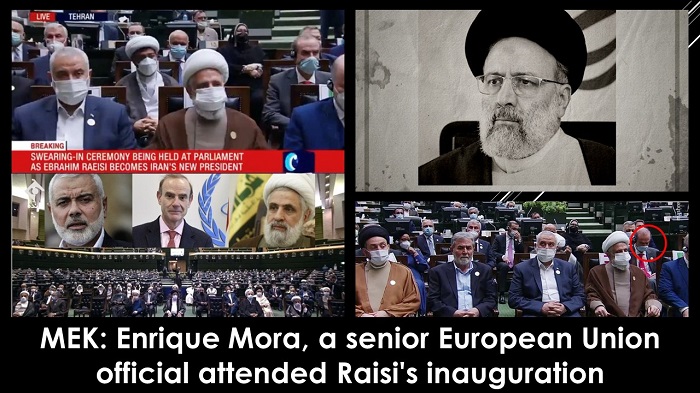
(NCRI) and (PMOI / MEK Iran): Enrique Mora, a senior European Union official, attended Raisi’s inauguration on August 5.
MEK Iran (follow us on Twitter and Facebook)
and follow Maryam Rajavi’s on her site 
and follow NCRI (Twitter & Facebook) and People’s Mojahedin Organization of Iran – MEK IRAN – YouTube
